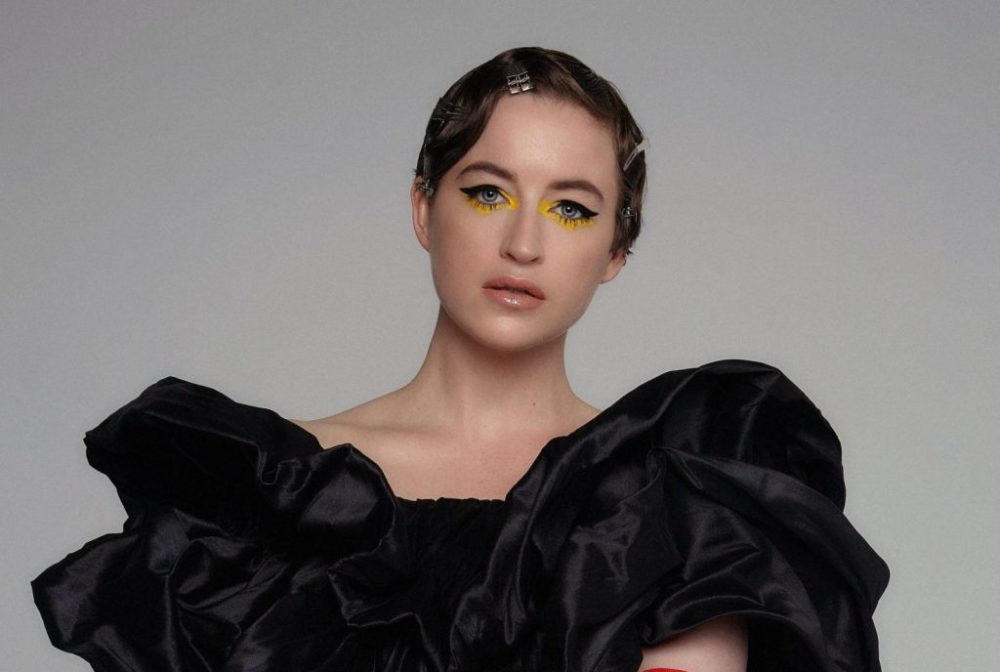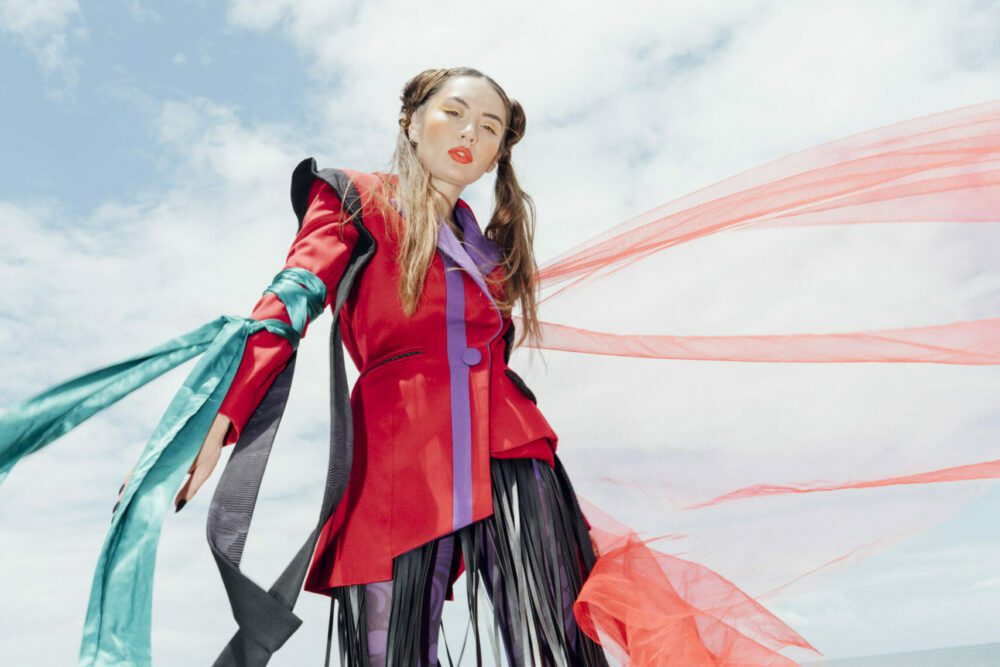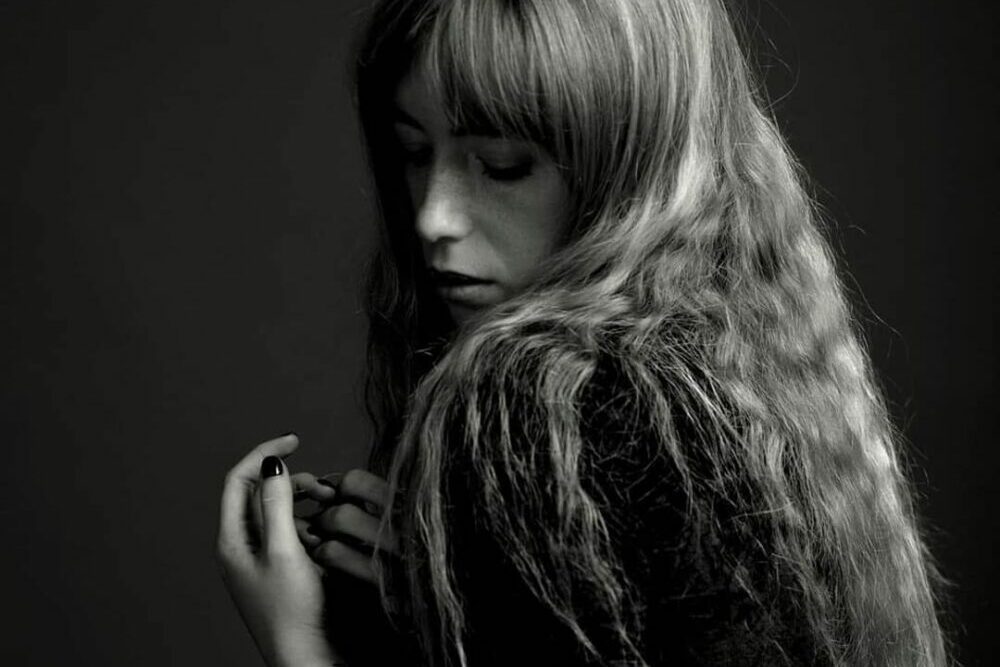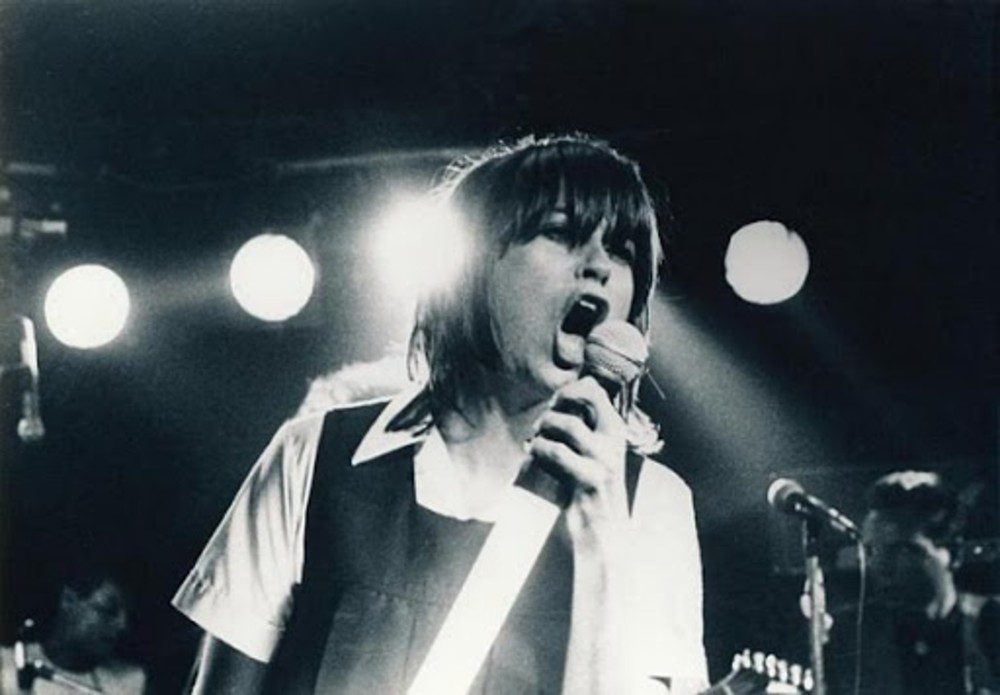Megan Washington Emerges Self-Assured on Epic Dark Pop LP Batflowers


Following the wave of critical acclaim unleashed by three LPs – I Believe You Liar (2010), Insomnia (2011), and There There (2014) – Megan Washington, who performs mononymously as Washington, has returned nearly a decade since her debut with epic new LP Batflowers, though not without some drama. The album is romantic and vulnerable, self-questioning and confident, and is clearly the work of a woman who has done a lot of self-investigation and remains curious about herself and the world around her.
Washington spoke with Audiofemme via phone call immediately after an infrared sauna session, in which she has embraced the solitary nature of being in a little room. She assures me she’s not avoiding the media about her album – she says she’s enjoyed interviews relating to this latest release; rather, she’s embracing any opportunity to get some thinking time away from the world. And anyway, she is not a woman who tolerates things that aren’t worthwhile. “If it doesn’t spark joy, do not participate,” she says.
That doesn’t mean things are always easy for the 34-year-old singer-songwriter. “In art, it’s necessary for me to not know exactly what I’m doing and to be in a process of discovery and search. So much important shit is based on constantly reinventing what you do, [and being] supremely comfortable with being in discomfort,” she explains. That’s the ethos behind the album’s lead single, “Dark Parts,” a synthy and seductive track with poppy, percussive undertones. And it also describes the complicated path Washington took to bring Batflowers into being.
The album went through several versions before Washington felt it was entirely an expression of herself. “I’m a total control freak, involved with every single element of the process – I don’t want random art, random music videos, and this random collaborative process. I want my work to have a strong identity,” she says. Washington was frustrated that the first and second iterations of the album didn’t meet her intentions. She knew the “vibe was off,” though she wants the people she worked with to know she found them amazing, and doesn’t blame or judge them. Rather, she says, she simply wasn’t hearing herself on her own album. The third version of Batflowers proved to be the one that “was everything that I want it to be, and I totally back it.”
Washington takes her role as songwriter seriously. “You’re literally putting words in people’s mouths if [the song is] catchy enough and people sing along,” she points out. “I have a choice about whether that’s negative energy or whether it’s a positive affirmation. For me, I want to make words that feel nice when I sing them so that you feel nice when you sing them, because there’s just too much negative energy into the world right now.” Even the two standout siren songs on the record, “Lazarus Drug” and “Catherine Wheel” have an uplifting streak to their particular fatalism.
During Washington’s six-year hiatus from releasing music, she got married to her husband Nick (a director), had a child (who is now a two-and-a-half) and moved to Brisbane. “I always thought I’d have to move to New York or LA if I wanted to be ambitious and succeed, and it was fun, but what I want is a healthy practice. I don’t want a chaotic, dramatic life so that I can make chaotic, dramatic music,” Washington says. “I want to make that music while living a healthy, peaceful life. Nick really championed my writing and my proximity to him has provided a safe environment as a non-musical writer could extend. We have films that we’re working on. The idea that I can write for other characters helps me to see myself as a character, so Washington to an extent is a persona. That separation from my artistic practice has been really good for me.”
As far as fitting the persona people expect, or trying to live a romantic dream, Washington realises she was living in the movie of her own life and that she’s now she is in a liberated, genuine place. “As I move into other areas of creative life, especially film and TV, I really see the music business rules for female artists very clearly. There’s a lot of things I used to accept but now, I really see how wrong it was. The only person who is in charge of what I do and what I make is me,” she says – and on “Not A Machine,” she delves further into themes of autonomy. “Women are taught so much to care about their age, and to be ashamed of getting older. It’s an existential insult.”
She’s wary too, of pigeonholing women as givers, something she addresses candidly on “The Give.” “We’ve been taught that apologising is giving,” she says. “I got asked about how I’ll feel about critics of the record, since it’s my guts on the table. I can’t imagine anyone who would critique a gift and that’s fundamentally what art is about. It’s on Spotify, it’s free, it’s there if you want it. Women being outrageously themselves is remarkable and that is giving. So, being apologetic isn’t a gift, being yourself is a gift.”
Ultimately, Washington is grateful for the evolution that Batflowers underwent – and the evolution she experienced while making it. “There’s this idea of risk that is inherent in art… the problem with risk is that you need it to grow,” she reflects. “Unless I’m terrified, I’m not trying hard enough.”
Follow Washington on Facebook for ongoing updates.




